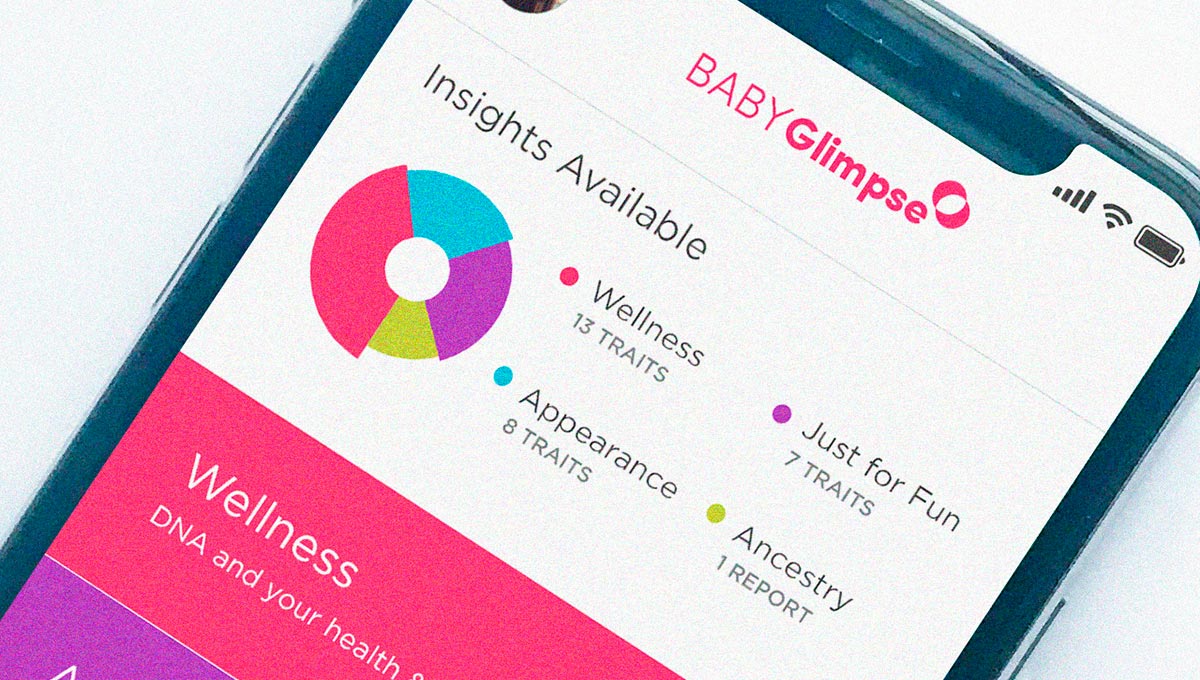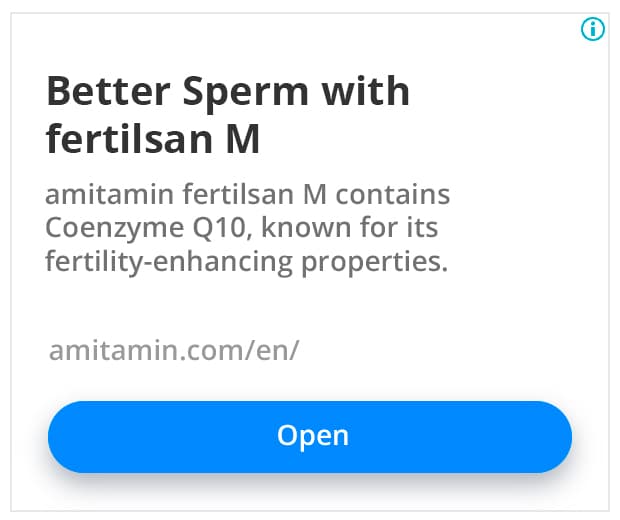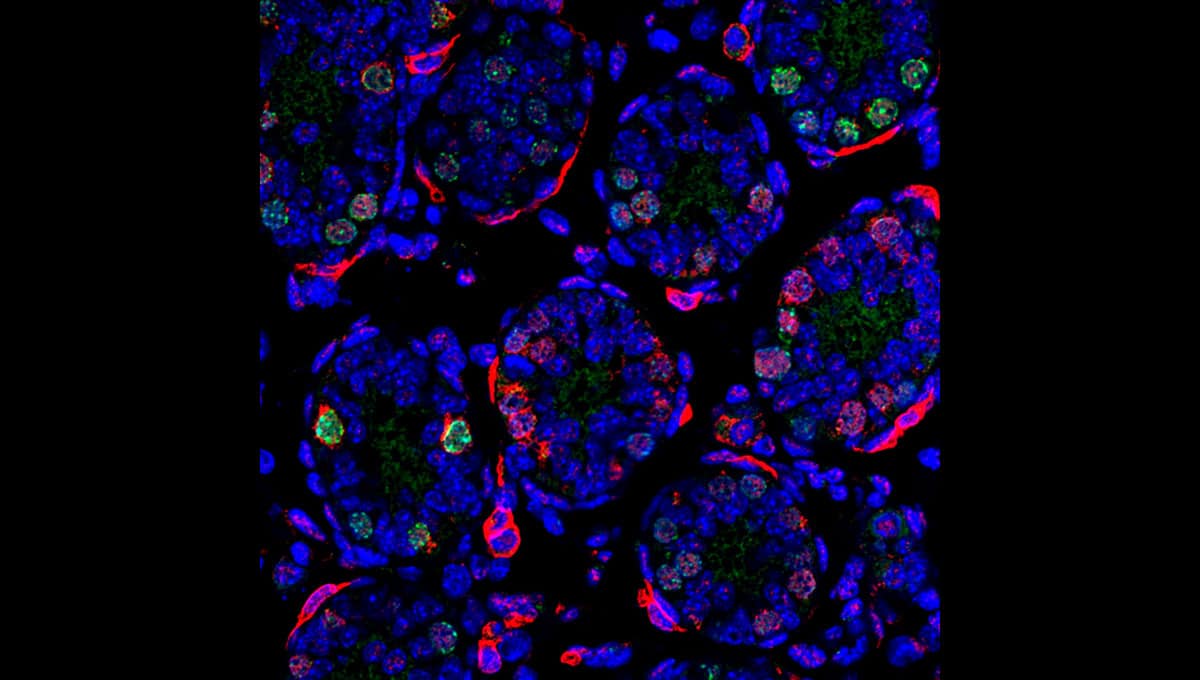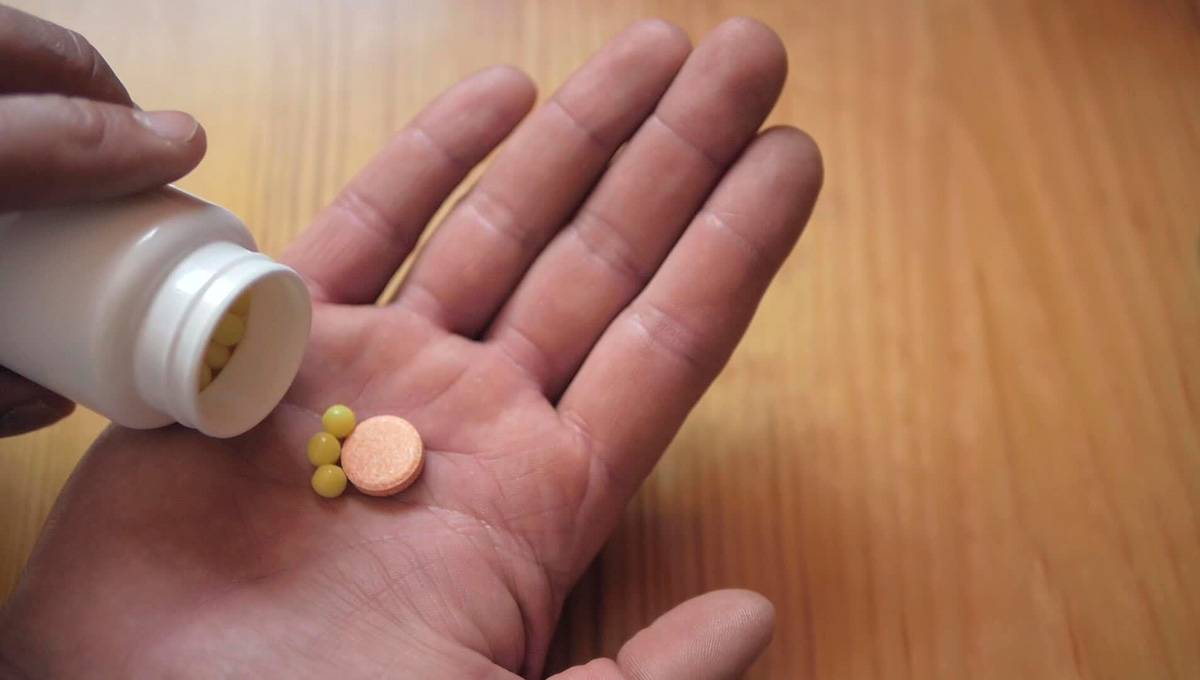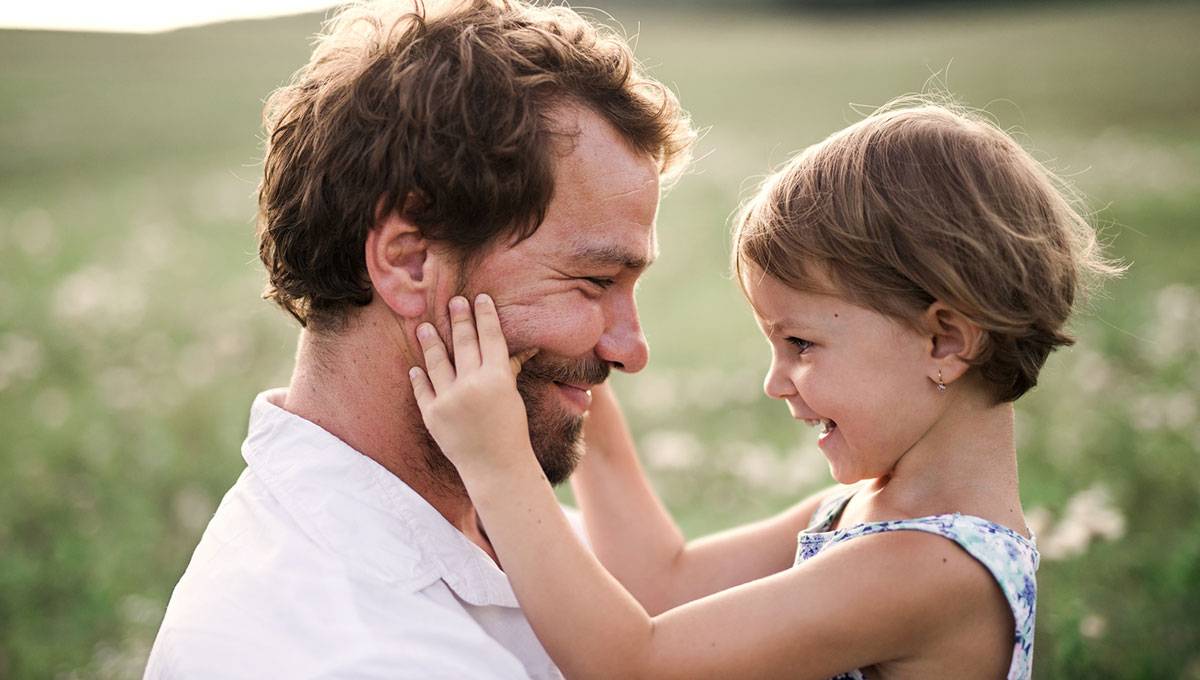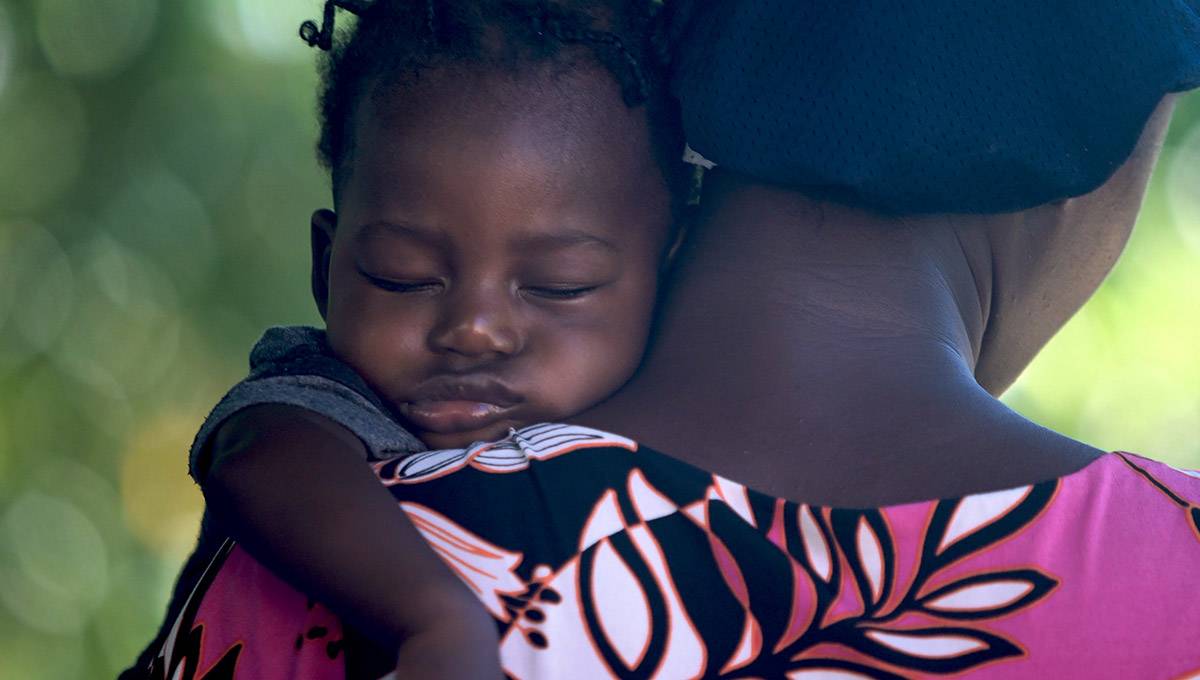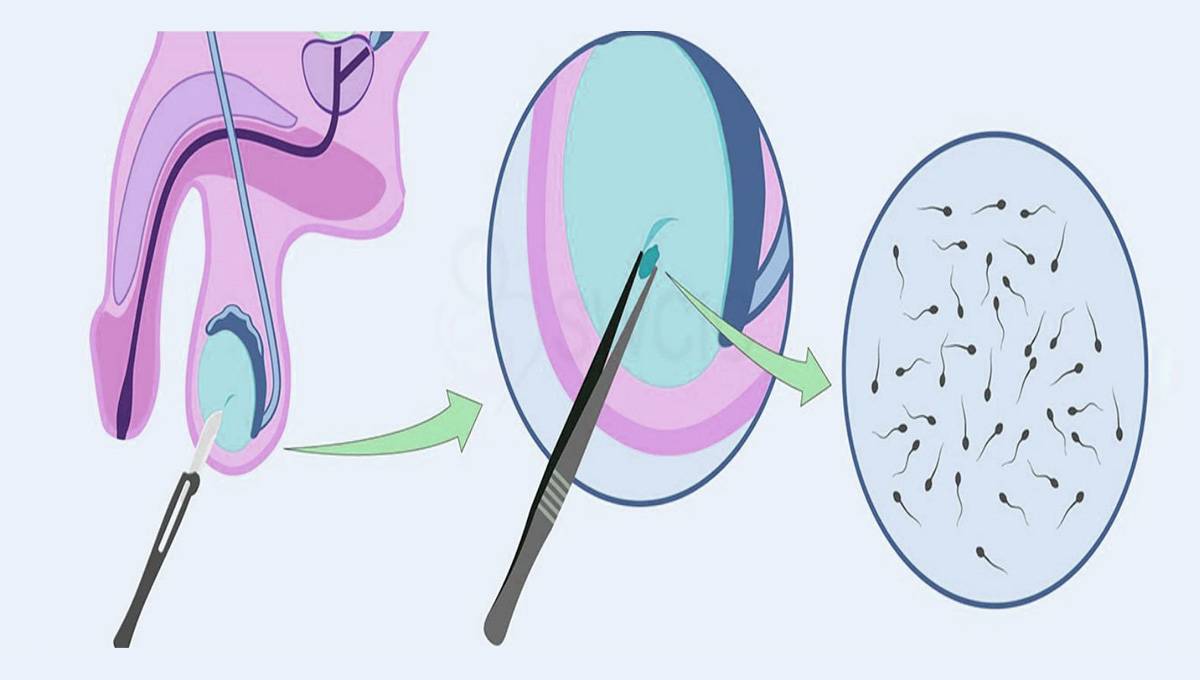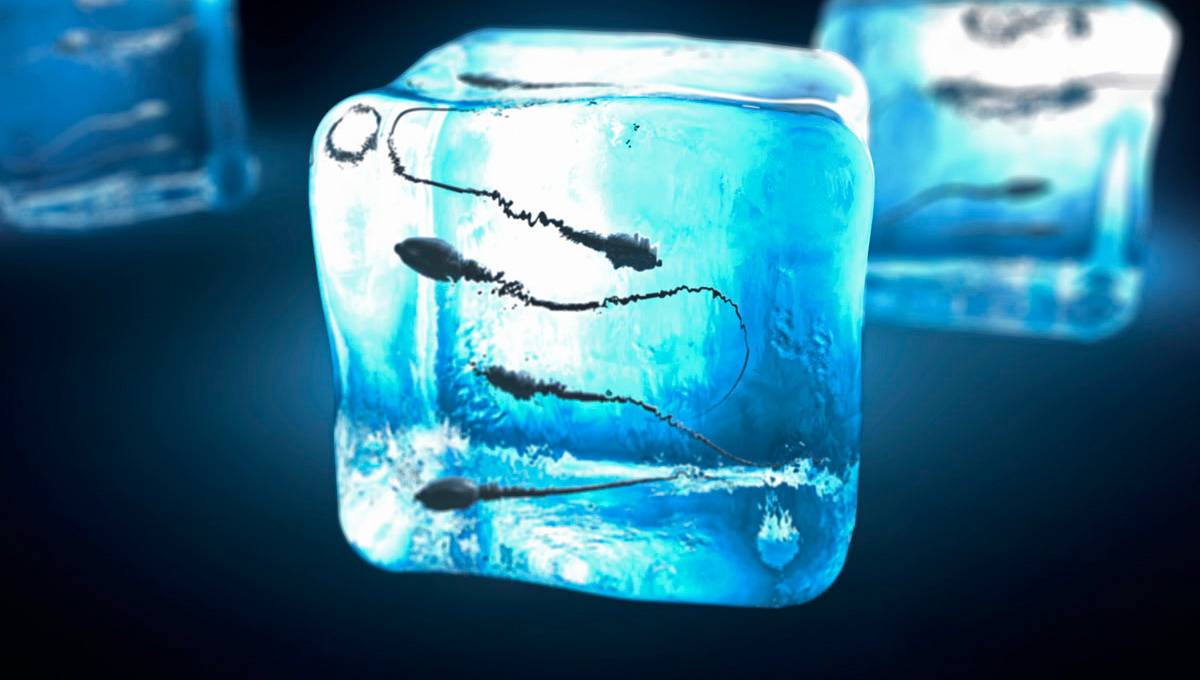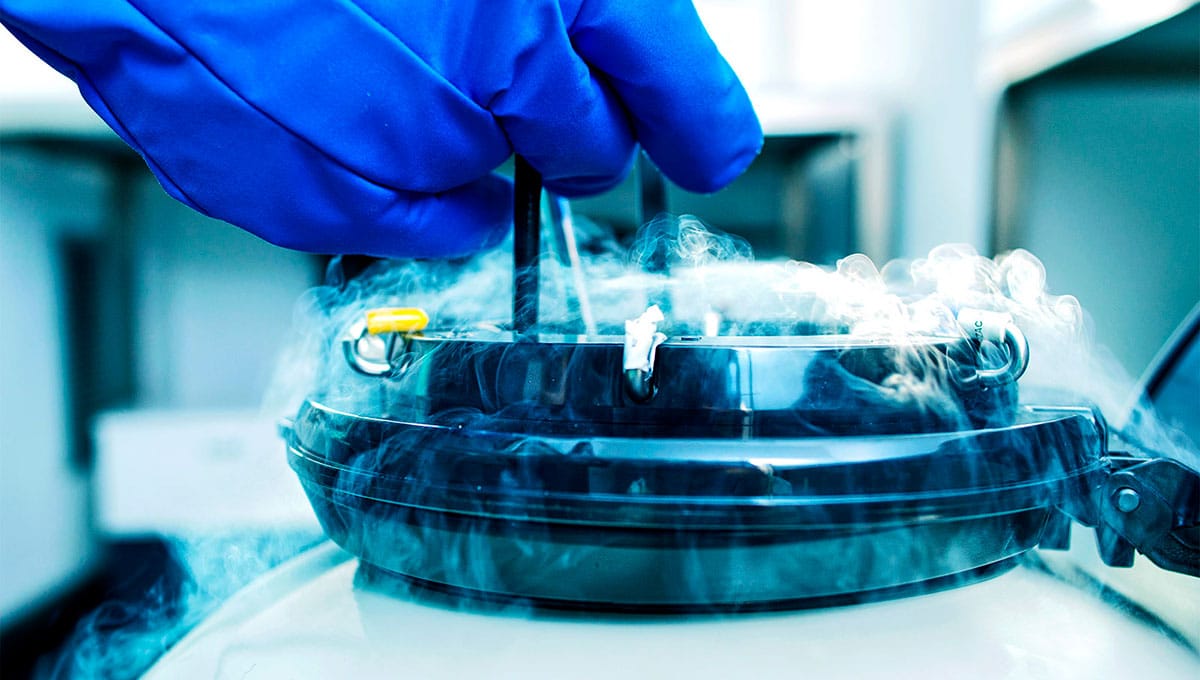What is BABYGlimpse?
BABYGlimpse is an innovative app by HumanCode which does not only do baby eye color prediction. It also does what sounds like the impossible: it gives you a possible glimpse into what your future child could be like.
Using you and your partner”s DNA, the app shows you the potential characteristics your baby could have. In fact, over 20 traits are analysed such as likely eye colour and hair colour. On top of this, the app also gives you an insight into your own DNA traits.
The story behind BABYGlimpse
The idea of BABYGlimpse came from a simple ultrasound scan. When Chris Glode and his wife were expecting their second child, they couldn”t help but feel curious. How different would “number two” be to “number one”? They wanted to know more than what the fuzzy black outline of an ultrasound scan could show them.
The team at HumanCode delved into researching two things: DNA sequencing and the wealth of information our genes hold not just about our own lives but about our potential offspring. Instead of DNA testing being reserved solely for detecting genetic disorders, they wanted to unveil a new option of what they called “sunshine science“, with genetic testing being used in a fun way.
How does it work?
Potential parents will need to provide BABYGlimpse with some DNA in the form of saliva using a home collection kit. This is then sent for DNA sequencing carried out by Helix which is a CLIA- and CAP- accredited genomics lab.
Helix securely stores your data and uses a proprietary computational method to combine you and your partner”s results. Based on both, it determines the likely traits your future child would have.
www.amitamin.com/en/fertilsan-m New life deserves the best possible start!We provide the essential building blocks for this.
Baby traits
BABYGlimpse gives an overview of you and your partner”s heritage based on your DNA. What”s more, it provides a breakdown of your future baby”s heritage as a combination of these.
However the real selling point of BABYGlimpse is the possibility of knowing what your baby will look like not just before it is born, but before it is even conceived. The app covers over 20 traits including eye colour and hair colour, and gives a detailed breakdown of the likelihood of different trait variations as percentages.
Your own traits
But if knowing your baby”s likely eye colour before it is conceived still isn”t enough information for you, you”re in luck. The app even gives an insight into behavioural traits such as how much of a sweet tooth you have, and whether stressful situations bring out the warrior or the strategist in you, according to your genes.
What does the press say?
Press coverage of BABYGlimpse has been mixed. There are the mommy bloggers out there who are excited to see innovation, mom.me recently wrote about BABYGlimpse being a great babyshower gift. There are other authors writing an informed yet un-opinionated piece like the folks at Digital Trends and Geek.com.
Then there are the skeptics, like Gizmodo, who aren”t sure whether or not this is even possible. HumanCode assures you that the science is real and this is definitely possible.
Human Genomics – analysing human genes
Technology offers us a wealth of information at our fingertips and it is no wonder that this thirst for knowledge has led to a boom in the field of personal genomics.
Who wouldn”t want to learn more about their traits based on their DNA, and which traits are likely to be carried forward to their future children?
BABYGlimpse taps into this desire to know the unknown.
Is BABYGlimpse for you?
BABYGlimpse is marketed as an ideal and unusual gift for a couple starting a family, maybe from an excited grandparent.
Maybe even as a gentle nudge from a wannabe grandparent or a persuasive gift to a partner who is perhaps reluctant to have children.
BABYGlimpse also targets tech-savvy mums and dads who want to know more about themselves and fancy getting swept up in the excitement of having a child. But there is no doubt that this is a premium service with a price tag to match- BABYGlimpse costs $259.98 which includes 2 Helix DNA home test kits.
How reliable are the results?
But if you”re feeling uneasy about the mystery of what your future baby would be like being swiftly unveiled much earlier than nature intended, don”t worry.
The app emphasises that ultimately whichever characteristics a baby will have in reality are influenced by environmental and lifestyle factors.
The results from BABYGlimpse should by no means be taken as a definite prediction of what your future child would be like, regardless of the scientific basis for the results and the hefty price tag.
It’s there for fun
Provided BABYGlimpse is used solely as a way to have fun, it is a wonderful and innovative idea. However it cannot go beyond this remit and it is certainly not suitable to be used as a decision-making tool. For example, you should not use it to decide whether to choose a certain partner.
Additionally it is by no means a medical or diagnostic test. It cannot be used for screening any diseases in parents or children. By focussing on the fun angle, BABYGlimpse also steers around any sketchy ethical territory associated with images of designer babies. As long as the results of the app are taken with a large pinch of salt, the app is certainly worth a look.
BABYGlimpse definitely ticks the box for being a fun way to anticipate a new arrival to the family. It is informative and enjoyable to use, and it offers us an exciting way to explore our genetic material. It is an entertaining snapshot of your genes and the characteristics you could pass on. Just do not take the results too seriously.

Dr. Jones is an experienced consultant in assisted reproduction.
He has worked as a Fertility specialist at Kingston Hospital Assisted Conception and nearly 10 years experience of working in Obstetrics and Gynaecology across hospitals in the UK.
He completed his Masters in Assisted Reproduction Technology and then his PhD, from Imperial College London. Dr. Jones main areas of interest are Single Embryo Transfer, Endometriosis, PCOS and Implantation failure in IVF patients. He is a member of the British Fertility Society and an associate member of the Royal College of Obstetrics and Gynaecology.
